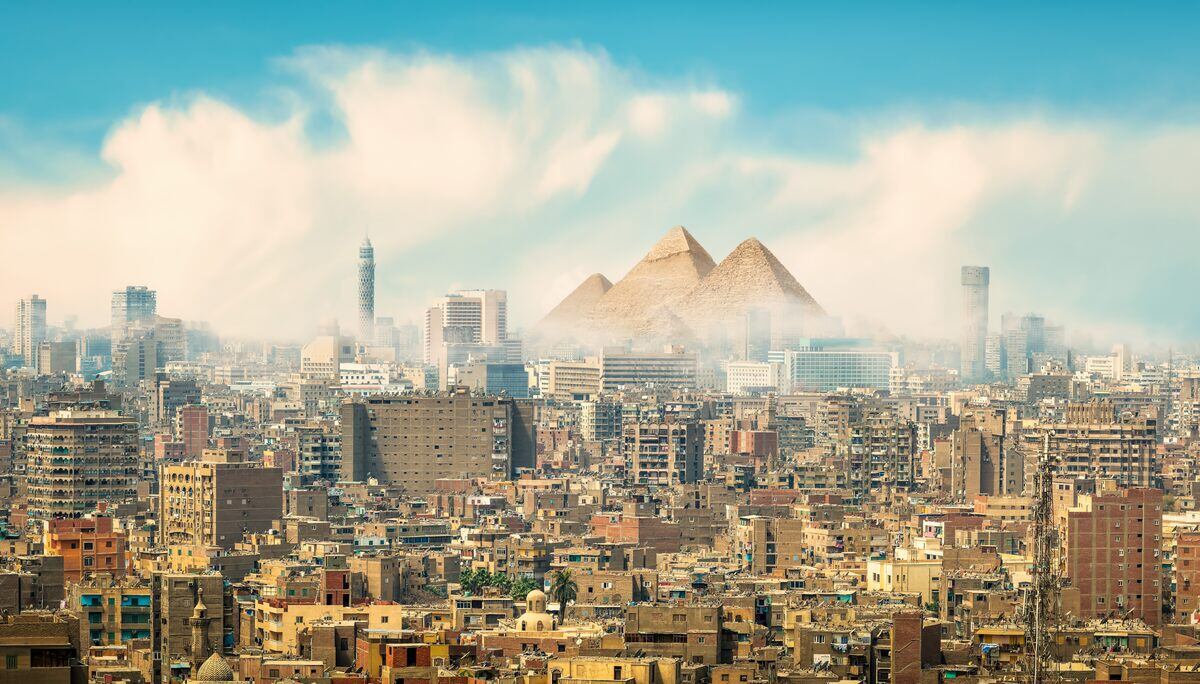ATMs in Egypt - Can I Use My Australian Debit & Credit Cards in Egypt?
Between the famous pyramids, mythological culture, rich history, and vibrant markets, Egypt is truly a land of wonder that any avid traveller needs to visit at least once in their lives. But whether you intend to spend your days marvelling at the Sphinx or cruising along the Nile, one thing is for certain – you’re going to need cash!
At Crown Currency Exchange, we know that you want to spend more time enjoying your holiday rather than wondering how you can access your finances abroad. That’s why we’ve put together this ultimate guide to using ATMs in Egypt. From understanding the compatibility of your cards to potential fees and limitations, we’ll provide you with all the essential information you need for a hassle-free Egyptian adventure.
Safety and Security Tips for Using ATMs in Egypt
While we highly recommend taking cash to Egypt to avoid ATM fees and charges, we also understand that life is unpredictable, and you may find yourself in a situation where using an ATM is your only option. In this instance, there are some important safety and security measures you should follow.
Assess the Area?
Before you even think about using the ATM, take a moment to look around you and determine whether you think the area feels safe. Red flags should include poorly lit areas, suspicious individuals or activities, and overly quiet areas, as all of these things are ideal conditions for thieves to operate in. Instead, choose an ATM in a populated area and, if possible, located within a bank.
Inspect the ATM
If you feel you’ve found an ATM in a location that you feel confident using, the next thing you should do is inspect it for any signs of damage or tampering. Look for unusual attachments, loose parts, or suspicious-looking devices around the card slot of the keypad, and if anything seems strange, do not use the ATM and report it to the nearest bank or authorities.
Cover Your PIN
Should you feel the ATM is safe and secure to use, insert your card, and when prompted, enter your PIN. When doing this, cover your hand with the other to shield the keypad from onlookers who might want to memorise or record your PIN, and you should also position your body to block the screen while you make your transaction. Don’t be afraid to ask for space if you feel crowded either, and if you don’t feel 100% safe while selecting your options, cancel the transaction and choose another ATM.
Secure Your Cash
As soon as you’ve withdrawn your money, secure it somewhere safe on your person. Money belts are great for this and will keep your cash, card, and other belongings secure, but you can use whatever you like as long as you feel it’s capable of securely holding your money and isn’t easy to snatch or steal from your person.
Monitor Your Account
In the days following your transaction, keep a close eye on your bank account activity for any signs of unauthorised transactions, such as cash withdrawals or online purchases you didn’t make. If you spot something that you don’t recognise, contact your bank or credit card company straight away.
Planning Tips For Your Trip to Egypt
With the promise of ancient wonders at every turn, it’s very easy to get lost in the excitement of your holiday and forget about doing some essential planning! Don’t worry, this isn’t overly complicated, but it is crucial to ensuring you have the best possible Egyptian adventure.
Research Travel Documentation
One of the most important things you need to do when planning a trip to Egypt is research what travel documentation you need. At present, Australian Citizens need to apply for an e-Visa to visit Egypt and once approved, this will allow you to stay for up to 30 consecutive days. However, if you’re planning to stay for longer, you’ll either need to renew your visa while in Egypt or apply for a different type of Egyptian visa, such as a 6-month temporary residence visa.
Plan an Itinerary
No trip to Egypt is really complete without seeing some of the country’s top attractions, including iconic landmarks like the Pyramids of Giza, Luxor Temple, and Abu Simbel, so once you’ve sorted your visa requirements, think about what you’d like to do when you’re in Egypt and plan an itinerary. Consider travel times between these destinations when doing this, as well as the opening hours of the attractions, and any seasonal considerations that might affect your visit.
Create a Travel Budget
Next, think about how much money you’ll need to visit these attractions, as well as how much you need for accommodation, food, transport, and extra essentials. Creating a travel budget like this will help you figure out how much to exchange and take with you to avoid costly ATM transactions and give you an accurate idea of how much cash you’ll need to carry each day.
Research Cultural Ettiquette
It’s also a good idea to learn about Egyptian customs, traditions, and cultural norms to show respect for local culture. For example, you need to know that you should dress modestly when visiting religious sites and conservative areas and ask for permission before taking photographs. Likewise, learn a few basic Arabic phrases and invest in a phrasebook that you can carry with you to communicate with locals.
Prepare for Emergencies
You should also make sure you’re prepared for any emergency you might encounter while in Egypt, and one of the best ways of doing this is by purchasing a travel insurance policy before you leave. This will cover you for a plethora of unfortunate circumstances, including lost luggage, cancelled flight and accommodation, and medical emergencies. You should also be prepared to deal with issues your travel insurance doesn’t cover, and for these, you’ll need to have the details of The Australian Embassy in Egypt saved.
Get the Best Exchange Rates on Egyptian Pounds at Crown Currency
While you can withdraw cash in Egyptian ATMs with relative ease, the main thing you need to remember is that you will be charged fees by the ATM operator and your own bank or credit card company for doing so. Also, these fees vary quite drastically depending on the type of ATM you use, and in some cases, you could end up paying up to $20 AUD on top of your requested amount.
So, to avoid these costs, we recommend exchanging money before your trip and taking cash with you. You’ll find great rates on AUD to EGP at Crown Currency Exchange with no commission, fees or hidden costs. Visit one of our many locations today and speak with our expert team, who will be happy to help and get you on the road to a truly memorable holiday.
FAQs
Can I Withdraw Money from ATMs in Egypt?
The first thing you need to know is that it is possible to withdraw cash from an ATM in Egypt using an Australian debit or credit card. However, you will be charged a fee when you do this, and the amount you’ll be charged will ultimately depend on which type of ATM you use, each of which also has its own benefits.
Bank-owned ATMs, for example, are the most common type of ATM you’ll find in Egypt, and they are operated by Egyptian banks, including the National Bank of Egypt and Banque Misr. As they’re so common, you’ll find bank-owned ATMs throughout cities and tourist areas, and they also support international transactions, meaning you shouldn’t have any issues withdrawing cash using an Australian card.
The downside, however, is that bank-owned ATMs will charge a withdrawal fee and an access fee, and you’re also likely to be charged a fee by your own bank for withdrawing money abroad. As such, things can start getting expensive quite quickly.
You’ll also find independently owned ATMs throughout Egypt, which aren’t affiliated with specific banks but are owned and operated by third-party companies. One of the best things about this type of ATM is that it can be found in more remote locations than bank-owned ATMs, giving them an extra level of convenience.
This convenience can cost you, though, as independently owned ATMs tend to have higher fees. Also, depending on who owns and operates the ATM, there’s a chance that international payment cards may not be accepted, so you’ll need to look for compatibility symbols on the ATM (like Visa or Mastercard) before you use it.
With these things in mind, it’s clear to see that your best option when withdrawing cash in Egypt is to use a bank-owned ATM, not only for compatibility but for lower fees when accessing your funds. But is there anything else you need to know about Egyptian ATMs?
Differences Between Egyptian and Australian ATMs
To answer the above, there are a couple of key differences between Egyptian and Australian ATMs that, if you are prepared for, can make navigating the menu options quite difficult.
One of the biggest differences is the language and interface used by Egyptian ATMs, as the instructions and prompts will be in Arabic. While this may seem quite daunting at first, there is a way you can change the settings to English.
Look for a prompt that says “إنجليزي” (pronounced iin-jili-ziun), and select this to display all of your options in English. Some ATMs also have flag options, and all you need to do is select a flag where English is the native language to change the language settings.
Another difference you’ll find when using an Egyptian ATM is its compatibility with international cards. While you are unlikely to face any issues when using your card to withdraw cash in Australia, ATMs in Egypt will usually only accept cards affiliated with major payment networks like Mastercard or Visa. Similarly, you’ll find bank-owned ATMs have better compatibility with international cards than independently owned ATMs.
What Are the ATM Fees and Charges in Egypt?
As we’ve explained above, no matter what type of ATM you use in Egypt, you’re going to be charged a fee when you withdraw cash. But, fees do vary quite significantly between bank-owned ATMs and independently-owned ATMs, and knowing what these are can help keep more money in your pocket.
Bank-owned ATMs charge the lowest fees, and you can expect to pay an average of £10 Egyptian Pounds ($0.32 AUD) when withdrawing cash. While this isn’t a huge amount of money, it is worth noting that you will be charged this amount per transaction, so multiple withdrawals could end up costing you quite a lot of money over time. It is also worth remembering that this fee is charged by the Egyptian bank that owns and operates the ATM, and your own bank is likely to charge you a fee on top of this, pushing the cost up even higher.
Visiting an independently owned ATM will cost you even more money, as not only will your bank or credit card company charge you an International Transaction Fee, but you’ll be charged as much as £50 EGP ($1.60 AUD) per transaction. On top of this, you might also be charged a currency conversion fee, which can be an eyewatering 18% of your transaction amount!
This means if you’re looking to withdraw £3,100 EGP ($100 AUD) from an independent ATM, your total transaction fee could be as much as £3,708 ($120 AUD).
Top Tip: You can easily avoid ATM fees in Egypt by creating a travel budget and exchanging your money before your trip with our experts in-store.
What Should You Do if Your Card is Lost or Stolen in Egypt?
While nobody likes to think about losing their card or, even worse, having it stolen while enjoying their Egyptian holiday, it is still important to know what you should do if this happens.
The first thing you need to do is contact your bank or credit card company, who will cancel the card and stop it from being used for any purchases. They’ll also go through recent transactions with you to see if there’s anything you don’t recognise, which will help with refunding any money that has been spent without your approval.
Don’t be concerned about time differences with this, as most banks and credit card providers have a dedicated 24/7 service for dealing with lost and stolen cards. It’s essential that you act straight away!
In the case of a stolen debit or credit card, you’ll also need to report this to the Egyptian police, who will provide you with a crime reference number. Once you have this, give it to your card issuer to help them with their investigation.
Should You Take Cash to Egypt?
With all of the above in mind, we highly recommend exchanging your money before our trip and taking cash to Egypt, as this won’t only mean you get the best possible rates, but you’ll save money on fees and charges.
You’ll also get other benefits from taking cash to Egypt, including being able to shop or dine anywhere without worrying about not being able to pay with your card or find an ATM close by. Likewise, you’ll also be able to rest assured that you’ll be able to pay for any emergencies or unforeseen circumstances.
It is important to remember to put certain safety measures in place when taking cash to Egypt, though. For instance, you should only take as much cash as you need with you per day, leaving the rest securely stored in your hotel room’s safe, and when you’re out and about, using a money belt or purse that you feel is capable of safely holding your money.




.png)

